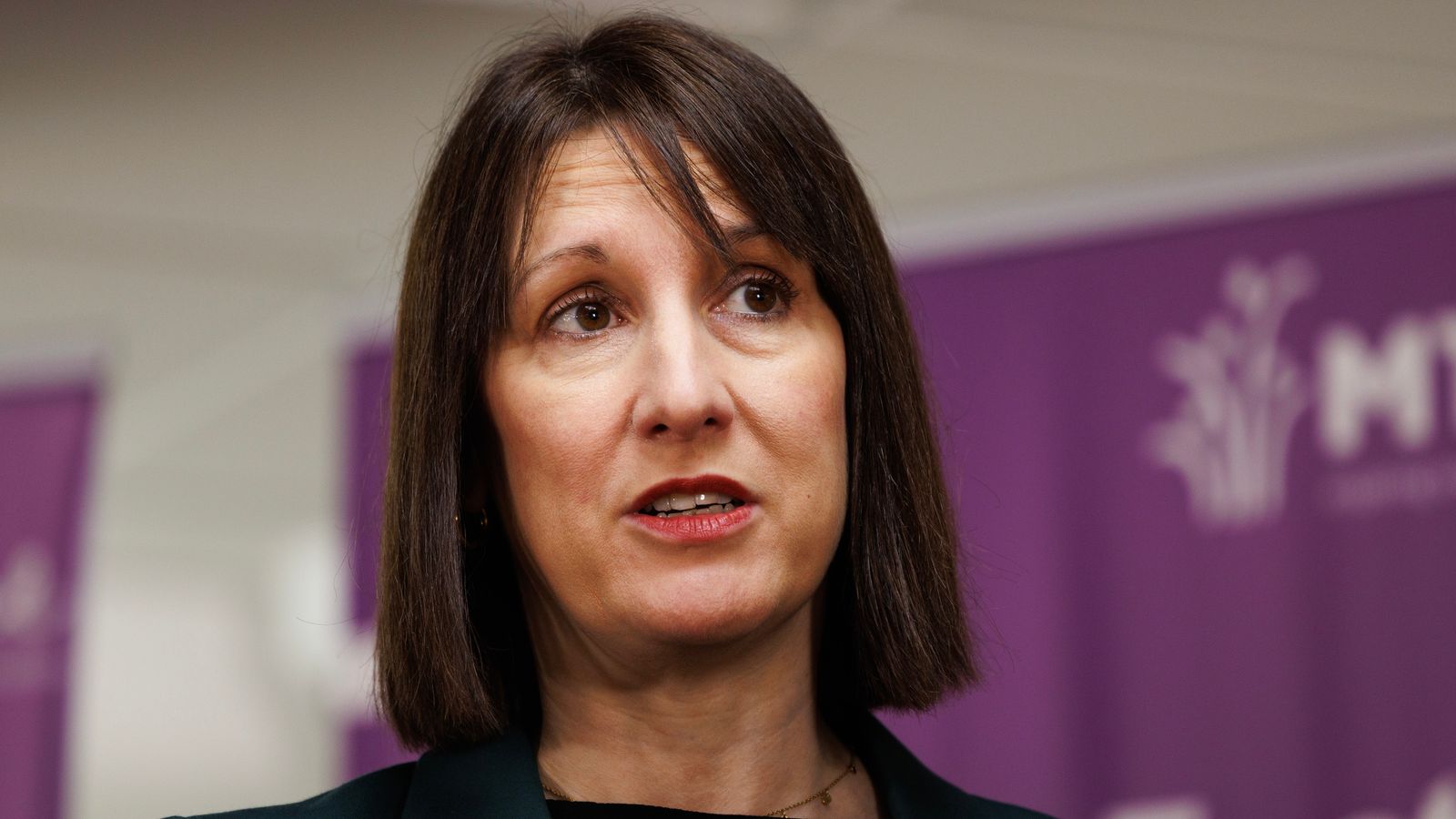The chancellor campaigned for Waspi women to receive compensation when she was shadow pensions minister – and revealed that her own mother was affected by changes to the pension age.
Rachel Reeves spoke in a Westminster Hall debate in 2016 in which she said the women hit by the increase to the state pension age from 60 to 65 in the 2010s had been “done an injustice”.
The Leeds West MP even proposed her own solution to the issue, arguing in favour of restoring the qualifying age for pension credit to the 2011 timetable for women’s state pension age, “thus providing at least some buffer for those who are least able to cope financially with this unfair move”.
It comes after the government was accused of betrayal over its decision not to compensate millions of Women Against State Pension Inequality born in the 1950s – known as Waspi women – who say they were not given sufficient warning that the state pension age was rising from 60 to 65.
Politics latest: Starmer tells Trump to ‘stand together with Ukraine’ in phone call
The change was due to be phased in over 10 years from 2010, but in 2011 the process was sped up for a new deadline of 2018. The pension age then rose to 66 in 2020.
The government said that because an ombudsman found 90% of affected women knew about the changes, there was no need to compensate them at the cost of an estimated £10.5bn – with Sir Keir telling Prime Minister’s Questions: “The taxpayers simply can’t afford the burden.”
Ms Reeves, who served as shadow pensions minister from 2010-2011 under Ed Miliband also stood firm behind the government decision – despite a picture emerging of her campaigning alongside Waspi women in 2020.
She said that while she understood that Waspi women would be “disappointed by the decision”, she had to “account for every penny of taxpayers’ money spent”.
“Given the vast majority of people knew these changes were coming, I didn’t judge that it was the best use of taxpayers’ money to pay an expensive compensation bill for something most people knew was happening,” she argued.
However, Angela Madden, chair of Waspi campaign group, said the 90% figure cited by the government referred to women who had a “vague awareness” that the state pension age “might happen for others in the future”.
Please use Chrome browser for a more accessible video player

1:00
Diane Abbott attacks Starmer on Waspi women
She said the ombudsman found 60% of women had “no idea” the state pension age was rising and accused the government of attempting to “cherry pick data”, which she said was “spreading dangerous misinformation, plain and simple”.
In the 2016 debate, Ms Reeves said she “absolutely” agreed with a fellow MP who said their constituents were “not told at all by any letter this was going to happen to them” and that the Department for Work and Pensions (DWP) had been “negligent”.
The current chancellor said millions of women had been hit twice by changes to the state pension age in 1995 and again in 2011.
Please use Chrome browser for a more accessible video player

0:38
Chancellor defends Waspi women decision
She said in the debate that she had campaigned alongside her mother and a number of unions on the issue – and urged the government to “think again”.
She said: “In 2011, as shadow pensions minister, I was proud to work with Age UK, USDAW–the Union of Shop, Distributive and Allied Workers -and many women, including my mother, in calling on the government to think again.
“We were pleased then that we won a partial concession so that no woman would have to wait for more than an additional 18 months before they could claim their pension.
Read more:
What is a Waspi woman and what happened to them?
PM accused of ‘raising hopes and smashing them’ with ‘broken promises’
“However, I said then, and say again today, that that does not go far enough in righting this wrong. There are still 2.6 million women who have lost out as a result of the government rewriting the rules, and 300,000 will have to wait an extra 18 months before they can retire.”
She added: “Friends have mentioned – women earning little more than the minimum wage who are often struggling to work full time because of their caring responsibilities, and who are desperately trying to conserve what savings they have to ensure at least a minimal standard of living during their retirement – are very worried.
“For those women, moving the goalposts for the second time, as the government have done, can have a devastating impact on their finances, families and life plans.”













Post comments (0)